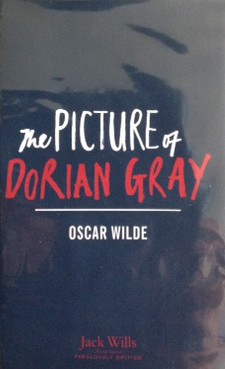Inspiring Older Readers
 posted on 04 Aug 2017
posted on 04 Aug 2017
The Picture of Dorian Gray by Oscar Wilde
I have always felt that one of the best things about Wilde’s only novel was the intemperate, frothing outrage it caused among contemporary book reviewers. I still find some of the more colourful remarks can make me laugh out loud. The Daily Chronicle called the tale “unclean,” “poisonous,” and “heavy with the mephitic odours of moral and spiritual putrefaction.” The St. James Gazette deemed it “nasty” and “nauseous,” while the Scots Observer said it dealt in “matters only fitted for the Criminal Investigation Department or a hearing in camera” and its contents would be of interest mainly to “outlawed noblemen and perverted telegraph-boys”. Phew! If that doesn’t make you want to read it nothing will.
Of course what was agitating their moral antennae was the barely disguised homosexuality that pervades the book – something that was practically taboo in mainstream fiction at the end of the 19th century. Wilde, of course, revelled in the publicity, fully intending to live up to his reputation for sensuality and decadence. His intention was not just to explore or even expose the existence of homosexuality in high society but to contribute to the creation of a body of decadent art reflecting the Fin de Siècle values of writers like Huysmans, Baudelaire, Rimbaud and Verlaine.
Reading it again for the first time in the best part of thirty years I was struck by just how brittle and artificial the book felt. It’s a story that most people know even if they haven’t read it: a beautiful young man has his portrait painted and discovers that as he becomes increasingly amoral and corrupted it is the painting rather than him that ages and shows the ravages of his sin. But the deliberately sensational frisson of gothic horror that Wilde threads through the book feels heavy handed and two-dimensional and the dialogue is overloaded with the sort of Wildean wit and bon motes that are a feature of his stage plays.
Despite the fact that Wilde wanted this to be a philosophical exploration of the nature of good and evil it ultimately feels superficial and shallow, failing to get beyond the desire to shock. The prose is elaborate and oppressive and opening the book is like walking into an over-stuffed Victorian sitting room. Wilde clearly hopes to create an atmosphere of lethargy and unspoken, dangerous sin – especially that of the ‘love that dare not speak its name’ - but rather than feeling soused in absinth and wreathed in Turkish cigarette smoke the overwhelming sensation is more akin to swigging from a bottle of cologne.
But that’s not to say that there aren’t some outstanding passages in the novel. I thought the treatment of Dorian’s first substantial relationship with the young actress, Sibyl Vane is excellently done and his heartless dismissal of her and the subsequent suicide is genuinely affecting. The death will come back to haunt Dorian later in the book when Sibyl’s brother sets out to be Gray’s nemesis. I also very much liked the sly amorality of Lord Henry Wotton who, like the serpent in the Garden, gradually seduces Dorian, pushing him towards greater and greater excess.
The end of the novel where Gray seeks to destroy his picture in order to bring his suffering conscience some respite is melodrama that the writers of Hammer Horror movie scripts would have been proud of and shows the limitations of Wilde as a novelist.
I can’t help but feel that this book’s reputation survives as it does because of what both the book and the author came to represent to the Gay community which felt so oppressed for so long. Wilde has been for many years a symbol of that oppression and the story he tells in The Picture of Dorian Gray seems to capture the way in which homosexuality was so often elided with dissolution, debauchery and sin.
We can see aspects of Oscar Wilde’s own personality in all of the book’s characters and in Dorian Gray there are eerie echoes of Alfred Douglas and the doomed relationship that would lead Wilde to his humiliation at the hands of the Marquis of Queensbury. The series of court actions that would lead to his fall from public grace, his exile and eventual death echo the path to destruction followed by Dorian Gray.
Ultimately, however culturally iconic the book has become it’s difficult not to conclude that as a novel it’s not really very good.
Terry Potter
August 2017